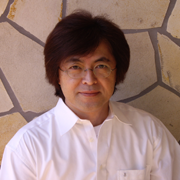Distinguishing Swine Flu (H1N1) from COVID-19: Clinical, Virological, and Immunological Perspectives
Author(s): Irene Batta, Tejinder Kaur, Devendra K. Agrawal
This article provides an in-depth examination on the differences between the influenza A strain, H1N1 (also called Swine Flu) and Covid-19 focusing on the immune response and clinical symptoms. Flu symptoms due to influenza A strain, H1N1, were initially discovered in 2009. This variant of influenza A is believed to have emerged through reassortment, a process where the resulting virus inherits gene segments from each of its parental viruses. This reassortment event has resulted in a variant with altered characteristics, potentially affecting the level of immunity in humans. The symptoms of this strain typically manifest 1-4 days after exposure and include fever, cough, sore throat, runny/stuffy nose, body aches, fatigue, and gastrointestinal symptoms such as diarrhea. The transmission dynamics of this new variant, including human-to-human transmission, are still under investigation by health authorities. Individuals with weakened immune systems are generally more susceptible to severe illness. Risk factors associated with swine flu can include older adults, young children, pregnant women, and individuals with obesity. Historical variants of swine flu, such as the 2015 variant in India, have been associated with significant case numbers and deaths, often due to respiratory failure. Since the epidemic of Covid-19 due to SARS-CoV2 in early 2020, several symptoms of COVID-19 and swine flu overlap. In this article, we critically reviewed the differences and similarities in the immune response and clinical symptoms due to H1N1 virus and SARS-CoV2 in human.


 Impact Factor: * 3.5
Impact Factor: * 3.5 Acceptance Rate: 71.36%
Acceptance Rate: 71.36%  Time to first decision: 10.4 days
Time to first decision: 10.4 days  Time from article received to acceptance: 2-3 weeks
Time from article received to acceptance: 2-3 weeks 
